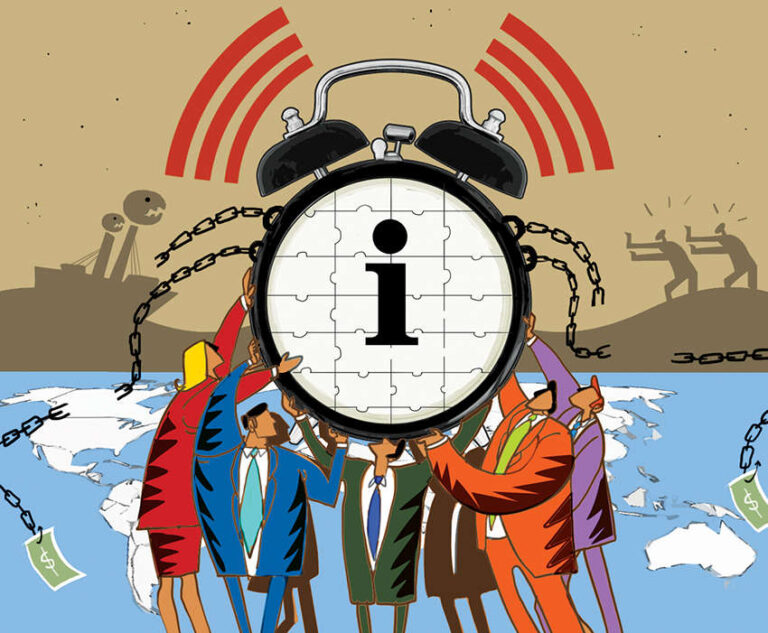Few remember the SS Tuscania today. In April 1929, when smallpox broke on this large passenger ship sailing from Mumbai to Liverpool via Marseilles, it triggered a European health and travel crisis that had some eerie resemblances to the global shutdown we have now with the coronavirus. Worried at the prospect of smallpox, France banned travel from the UK for those without vaccinations.
The British saw the European smallpox lockdown as an unnecessary exaggeration and the dispute threatened the global movement of people and goods at a time of severe economic crisis. Nothing the British health ministry said would convince the French. The crisis was only defused, as information historian Heidi J Tworek has documented, when the League of Nations Health Organisation (LNHO) – the precursor of WHO – issued a reassuring epidemiological bulletin that was seen by all to be impartial and credible.
At a time when President Donald Trump has wrongly suspended US funding for WHO, accusing it of a pro-China bias in handling the coronavirus, the SS Tuscania episode underscores just how critical the flow of credible, impartial and scientifically sound medical information is at a time of global crisis. The LNHO officials seized on the Tuscania incident, Tworek has shown, as “an opportunity: they could defuse the dispute and simultaneously showcase the League as a new and indispensable broker of information.”
Much like our present day crisis, the inter-war period is largely remembered for the retreat of globalisation. Yet countries even then agreed to honest data sharing with the LNHO, because they saw the benefits of having what one official called “a central fire-station in a municipal system of fire prevention”, overseeing “the world’s alarm system”. So, Germany continued to send out medical data even after Hitler withdrew in 1933 from the League. The need to keep data flowing also helped investments in wireless infrastructure, which later became the centrepiece of our modern telecom network.
There is no question that the world needs a neutral arbiter of medical data. This is why Trump is wrong to suspend funding to the WHO, an organisation he accuses of “severely mismanaging and covering up the spread of the coronavirus” by kowtowing to the Chinese view. His bellicosity, of course, helps deflect attention from his own delays in dealing with the virus as a national emergency. The Americans must restore WHO funding.
Second, the crisis at WHO represents a deeper malaise at its heart, one that plagues almost all multilateral organisations. Make no mistake, Covid-19 has brought to the fore what many who work in global institutions have known for years: without strong and independent leadership, many have been hostage to politicisation and manipulation, lacking legitimacy for years. Credible international organisations work only when they are seen to be neutral and impartial.
In reality, many of our global institutions are so dependent on their donors for funding that they often become pawns for their political agendas. This has contributed to what Shashi Tharoor and Samir Saran have termed the “new world disorder”, with countries slipping back into 19th century style spheres of influence. This decline of the post World War II global order has been fast forwarded by the retreat of the US and the West from globalisation, with China trying to fill the vacuum.
As international organisations become more dependent on China, their bureaucrats will be more reverential to Beijing. WHO director general Tedros Adhanom Ghebreyesus was praising China for its efforts till mid-February. Similarly, strategic affairs scholar C Raja Mohan has pointed out how UN secretary general Antonio Guterres was quick to jump into Indo-Pak arguments over Kashmir in 2019 and raised concerns over CAA and NRC, and was making offers to mediate between Delhi and Islamabad as late as February. “But when it comes to China’s role in the spread of the coronavirus, Guterres can’t seem to find the words.” All his appeals so far “consciously avoid getting into anything specific,” as Raja Mohan has pointed out.
Without credible independent leadership and secure funding, the legitimacy of many international organisations is broken at precisely the moment they are needed the most. The UN system, the World Bank, the IMF and many other international institutions were all created after World War II as tools to reconstruct the post-war world. That system is now facing its greatest crisis ever with war-style falls in GDP globally, and what the IMF calls the “biggest economic downturn since the Great Depression” of 1929.
IMF’s latest World Economic Outlook notes that for the “first time since the Great Depression, both advanced economies and emerging market and developing economies are in recession.” This is precisely the time we need our multilateral institutions to work optimally. Without them, the task of recovery will be more difficult. IMF’s Gita Gopinath has rightly argued that “multilateral cooperation is vital to the health of the global recovery” and “collaborative effort is needed to ensure that the world does not de-globalise, so the recovery is not damaged by further losses to productivity.”
Multilateralism is crucial to fighting this crisis and maintaining the global commons is vital to get through this. Yet, on the other side of this crisis lies a drastic restructuring of the world order with Washington retreating into isolationalism and China’s credibility dented. Covid-19 is accelerating many existing fissures in the international system. How we go about addressing them will be fundamental to our political and economic futures.


